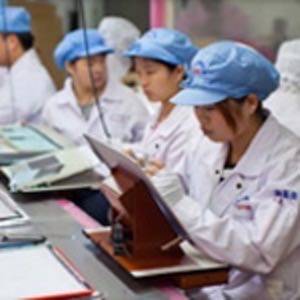Not even 24 hours after Apple reported its jaw-dropping Q1 financial results, the company found itself the target of some relentless investigative journalism by the New York Times. In particular, as part of an ongoing series about Apple, the Times published a detailed investigation of some of the tech giant’s biggest overseas suppliers, ugly labor abuses and all.

From deadly plant explosions and poisonous screen-cleaning chemicals to unsafe working conditions and long hours, the report was anything but forgiving. In response, there is a small but growing chorus of consumers asking Apple to do more about these issues. A petition demanding a more ethically-built iPhone 5 and other products is said to have amassed 40,000 signatories in its first 24 hours.
Apple has already made some efforts to improve labor practices among its suppliers, something the Times article acknowledges. It has thoroughly audited its suppliers, in many cases pressuring them to change more egregious practices. This year, the company even published a list of its suppliers for the first time, in an effort to be more transparent. Still, as the Times report illustrates, many abuses persist.
The company, like others that make consumer electronics, remains in an awkward position as its quest to meet growing demand clashes with the ethical concerns that naturally arise when the manufacturing is done in countries that lack the U.S.’s labor laws. Apple has stated that achieving the level of efficiency they now boast simply wouldn’t be possible in the United States, where manufacturing has waned, labor is costly and regulations too strict to allow for lightning speed turnaround on last-minute changes. To stay competitive, it needs to keep its operations in places like China.

E-Signatures vs. Wallets: Which Votes Count More?
Forty thousand signatures may sound like a lot, but it’s a drop in the bucket compared to 37 million. That’s how many iPhones Apple sold in its last quarter, in addition to more than 15 million iPads. The pressure from consumer and human rights groups may well ramp up in the coming weeks and months, but for the time being the number of people voicing their concern is only .07% of the number that bought iPads and iPhones in the last quarter. That’s not counting iPods and Macs.
To make a substantial impact, there would need to be an actual boycott of Apple products widespread enough to make a noticeable dent in their sales numbers. Some may decline to buy the iPhone 5, iPad 3 or iTV in protest, but probably not enough to make a difference.
Alternatively, the issue would need to turn into a much bigger PR problem for Apple, leading consumers to think twice or forcing the company to preempt an exodus by pressuring suppliers to shape up.
This isn’t to suggest that a concerted enough Web-fueled protest couldn’t generate the pressure required to encourage change. We saw it happen in more ways than one with the SOPA and PIPA debate. Still, this is Apple we’re talking about. Rather than asking citizens to phone their representatives, such a protest would be asking millions to break their addiction to some of the most popular consumer electronics products of all time. These are devices that have woven themselves deeply into our day-to-day lives.
If people were to flee Apple, where would they go? To one of Apple’s competitors? They’re not exactly innocent either.
What do you think? Are labor rights issues enough to cause you to reconsider buying devices like smartphones and tablets? Let us know your thoughts in the comments.

















